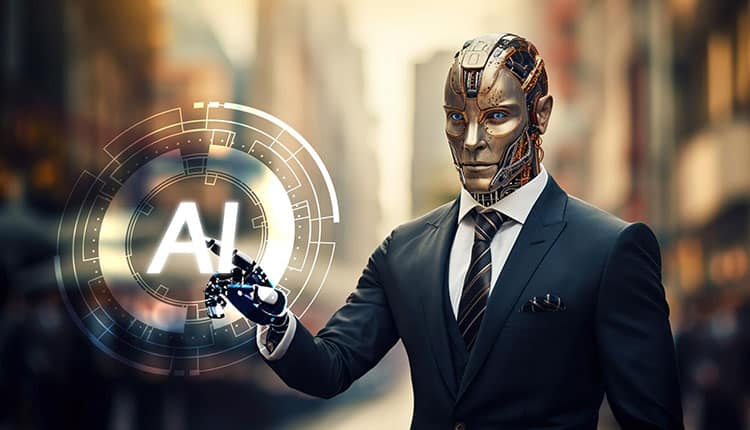By Sumit Sabharwal, Head of HRSS, Fujitsu International Regions
Human Resources and Artificial Intelligence (AI) represent two crucial dimensions that have become increasingly interconnected within the contemporary business landscape. The
integration of AI and machine learning (ML) has ushered in a new era for HR practices, spanning from talent acquisition and talent development to fostering employee engagement and advocacy. The evolving role of Artificial Intelligence (AI) presents the prospect of fundamentally transforming human resources (HR) and recruitment methodologies, with the potential to enhance the efficiency of existing HR processes and mitigate the demands of arduous, time-consuming responsibilities.

AI is the simulation of human intelligence in computers that are built to think and learn in the same way that people do. In HR, AI automates and improves various tasks and processes to improve efficiency and decision-making, engages chatbots for employee inquiries, and deploys predictive analytics to ease employee onboarding or better workforce planning. While machine learning delves into the examination of resumes discerns exceptional candidates, forecasts employee attrition rates, and offers tailored suggestions for training and growth initiatives, research indicates that worldwide AI in the human resources sector is poised to reach a substantial valuation of $3.6 billion by 2025, signifying a persistent trend of growth and widespread integration.
Challenges and Opportunities
Amid a new digital landscape, rising employee expectations, and evolving business dynamics, HR professionals contend with a slew of challenges. Adapting HR processes and systems to digital transformation, especially in organisations with legacy systems can prove demanding. HR leaders today grapple with tasks ranging from keeping up with talent acquisition in the digital world and rapidly evolving HR technology such as HRIS, AI Tools, and Data Analytics to boost employee engagement. They also have to adapt to various recruitment strategies to find the right talent in a competitive job market.
While navigating these challenges, leaders should also remain vigilant of potential advantages on the horizon. These encompass enhancing the overall employee journey, embracing a variety of learning and growth initiatives, and streamlining decision-making through AI to enhance results while safeguarding efficiency. Furthermore, AI can analyze large amounts of data quickly, empowering decision-makers with useful insights to help them make informed decisions. This data-driven decision-making can result in better resource allocation, better strategy, and increased work satisfaction.
Advantages of using AI in Human Resources
AI has the capacity to revolutionise HR operations by providing a myriad of advantages. It is reshaping the HR landscape by streamlining recruitment processes, bolstering employee
engagement, and optimising workforce management. Below are some notable examples:
1. Enhanced Employee Engagement: The implementation of technologies like chatbots and sentiment analysis tools enables HR to gauge employee sentiment and engagement levels. This, in turn, empowers HR to take proactive measures to enhance overall morale and job satisfaction.
2. Efficient Recruitment and Candidate Evaluation: AI-driven systems excel at evaluating vast numbers of resumes with pinpoint accuracy, matching candidate qualifications to job requirements. This not only saves time but also ensures that the most qualified candidates are considered. It also enriches the candidate experience by facilitating smooth onboarding, resolving queries, and offering round-the-clock assistance.
3. Automation of Administrative Tasks: AI is adept at automating routine administrative functions such as payroll processing and leave management. This not only minimizes manual errors but also liberates employees to concentrate on strategic initiatives.
4. Data-Informed Decision-Making: AI has the capability to process extensive volumes of HR data, yielding valuable insights that aid HR managers in making well-informed decisions regarding workforce planning, compensation, and talent management.
5. Real-Time Performance Assessment and Feedback: AI-powered systems are capable of delivering real-time feedback and performance assessments, ensuring that employees are cognizant of their strengths and areas requiring improvement.
By leveraging the advantages of AI, HR can not only boost operational effectiveness but also
nurture a more engaged and high-performing workforce, thereby playing a pivotal role in the overall success of the organization. Furthermore, it enables HR to transition from a responsive to a forward-thinking decision-making approach, leading to more favorable results.
Today, the incorporation of Artificial Intelligence (AI) stands poised to revolutionise human
resources (HR) operations, elevating them from conventional administrative tasks to strategic, data-centric functions. The strategic utilisation of AI has the capacity to improve HR operations and cultivate a highly engaged and efficient workforce, thereby confirming its significance in steering organisational achievement. The forthcoming era of HR will be characterised by heightened efficiency, tailored solutions, enhanced diversity, and increased adaptability, all of which are poised to build a more engaged and devoted workforce.

